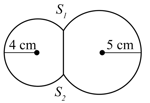B M Sharma Solutions for Chapter: Properties of Matter, Exercise 4: DPP 5.4
B M Sharma Physics Solutions for Exercise - B M Sharma Solutions for Chapter: Properties of Matter, Exercise 4: DPP 5.4
Attempt the free practice questions on Chapter 5: Properties of Matter, Exercise 4: DPP 5.4 with hints and solutions to strengthen your understanding. Chapterwise/Topicwise Daily Practice Problems (DPP) Mechanics - II JEE Main & Advanced solutions are prepared by Experienced Embibe Experts.
Questions from B M Sharma Solutions for Chapter: Properties of Matter, Exercise 4: DPP 5.4 with Hints & Solutions
If for a liquid in a vessel, the force of cohesion is twice that of adhesion,
If the surface of a liquid is plane, then what is the angle of contact of the liquid with the walls of container?
In a capillary tube, the water rises by . Calculate the height of the water that will rise in another capillary tube, having half the radius of the first.
A capillary tube of radius is dipped in a liquid of density and surface tension . If the angle of contact is , calculate the pressure difference between the two surfaces in the beaker and the capillary.
Two soap bubbles of radii and , equal to and , are touching each other over a common surface (shown in the figure in the figure). Find the radius of common surface.

A capillary tube of radius is immersed in water and the water rises in it to a height . Mass of the water in the capillary tube is . If the radius of the tube is doubled, calculate the mass of water that will rise in the capillary tube.
Two capillary tubes of the same diameter are put vertically, one each, in two liquids whose relative densities are and and surface tensions are and , respectively. Calculate the ratio of heights of liquids in the two tubes .
If the excess pressure inside a soap bubble is balanced by oil column of height , then calculate the surface tension of soap solution. ( and density )
